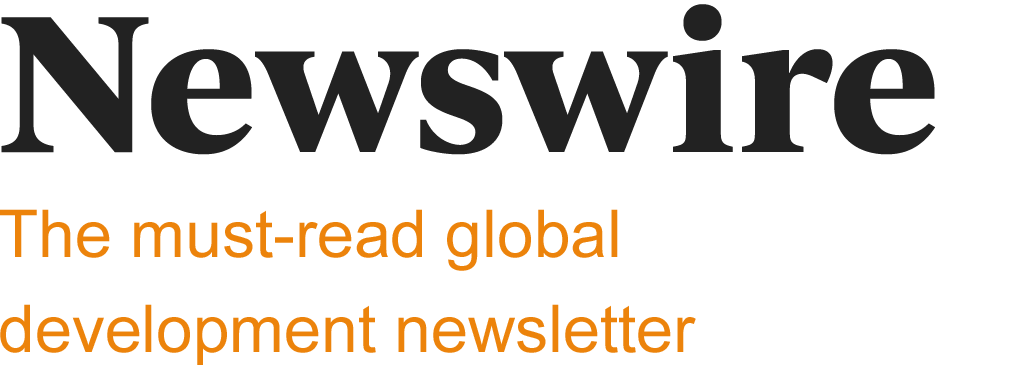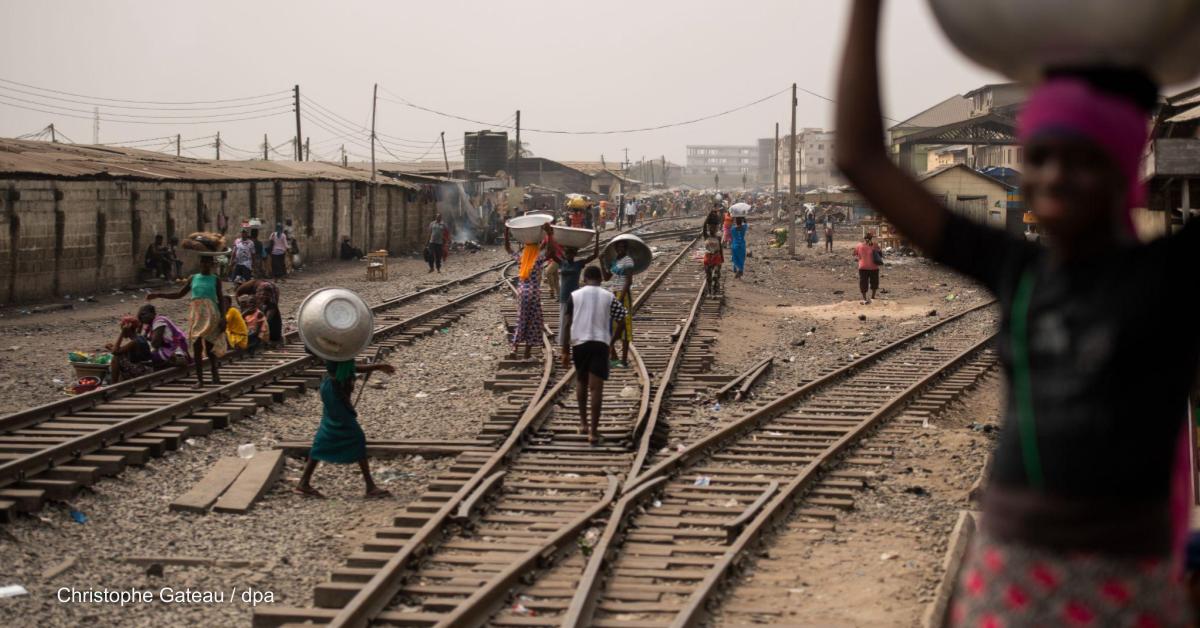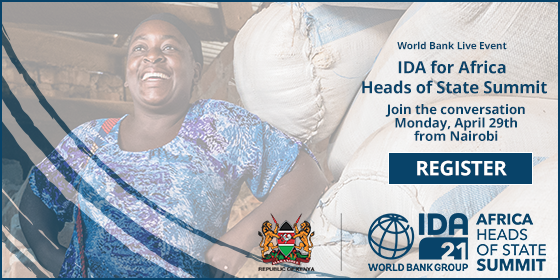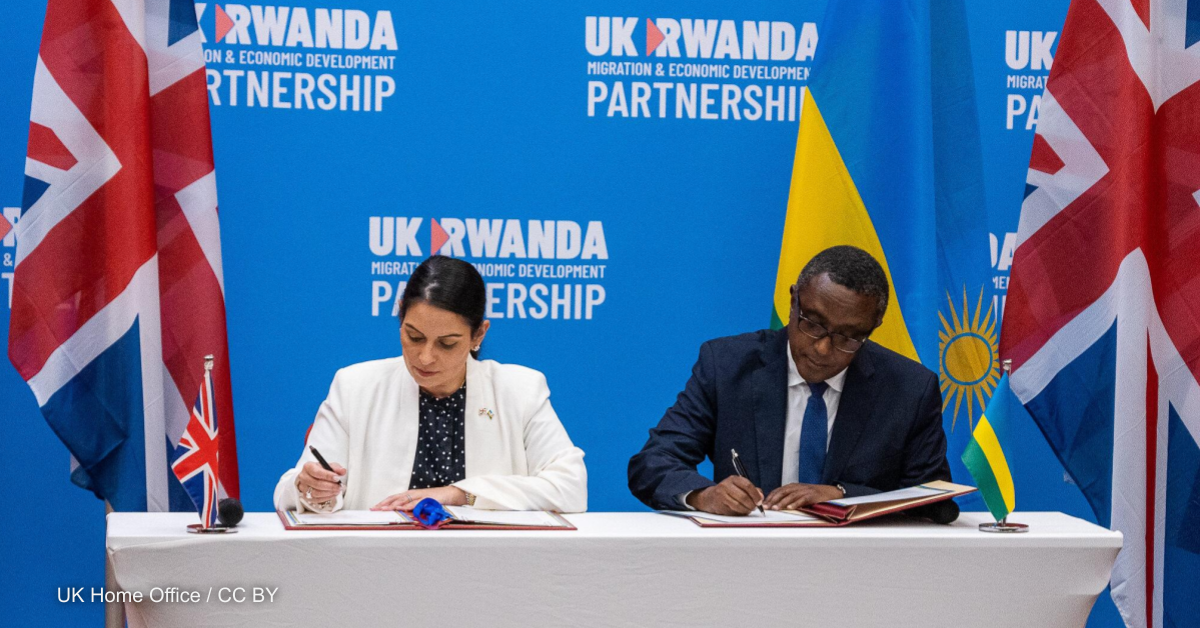|
Genocide haunts Rwanda’s localization effort.
|
|
|
|
Nations from the global south now pay more in debt than they receive in aid — and the trend is only getting more pronounced. Also in today’s edition: U.K. aid chief Andrew Mitchell’s dramatic shift on Rwanda, and our on-the-ground report from the World Health Summit regional meeting in Melbourne, Australia. 
|
|
Debt versus aid
In the grand narrative of development, the premise is simple — wealthier nations extend financial help to low- and middle-income counterparts. But, recent data from the ONE Campaign paint a rather different picture: Last year, nations of the global south shelled out tens of billions more in debt repayments than they received in fresh lending or official development aid. And as this year unfolds, the trend continues.
The figures, unveiled ahead of the World Bank-International Monetary Fund Spring Meetings, dissect net financial flows to nations in the global south and draw on data from the World Bank and the Organisation for Economic Co-operation and Development. In 2022, a year marked by economic upheaval, net financial transfers to lower-income countries fell to their lowest since the global financial crisis. From a high of $225 billion in 2014, net inflows dwindled to $51 billion, writes Devex Business Editor David Ainsworth. Further analysis based on World Bank projections found the numbers are expected to dip further. In 2023, instead of money flowing into global south nations, a net $21.4 billion is projected to have flowed out. And $50.5 billion more is expected to depart this year. That’s because aid from wealthier donors has not grown with need and donor countries spend more assisting refugees domestically, keeping aid money within their own borders. COVID-19 and conflict-driven inflation has also pushed up interest rates, driving up borrowing costs for countries in the global south and weakening their exchange rate with the U.S. dollar. Read: Global south now repays more in debt than it gets in grants and loans |
|
|
|
A message from the World Bank Group
Africa is key to ending poverty on a livable planet
Join the World Bank Group and African leaders on Monday, April 29, live from Nairobi to discuss the International Development Association's continuing role in Africa's economic progress. Watch our live event and engage with #IDA21 on social media. |
|
|
|
Philosophy of giving
From that to this: As the flagship conference of the Asian Venture Philanthropy Network — Asia’s largest network of social investors — opened in Abu Dhabi, United Arab Emirates, yesterday, one of the conference hosts challenged participants to look at philanthropy in a new way — the way they see it in the UAE.
Philanthropy should never be reduced to giving money, helping others, or fixing situations, said Shamma bint Sohail Faris Al Mazrui, the country’s minister of community development. Instead, philanthropy should be seen as acts of service — service that helps the giver as much as the recipient, writes Devex Senior Reporter Sara Jerving, who attended the conference. When philanthropy is used as a public relations move, the minister said, it takes the “magic out of the equation.” “Helping is based on inequality — it’s not a relationship between equals. When you help, you use your own strength to help those of a lesser strength. People feel this inequality,” she said. “When you give to someone, they owe you. But serving is mutual. There is no debt. I am as served as the person I’m serving.” Related readings: |
|
Echoes of atrocity
Thirty years after Rwanda's genocide, efforts to localize development aid are still scarred by the nation’s past. The violence that led to the deaths of close to a million people during 100 days in 1994 throttled economic growth and is still being felt today, writes David Njagi for Devex.
Despite averaging $427 million annually in foreign aid and development assistance over six decades, Rwanda's economic trajectory is still off track. While local leaders champion a resolute political will to drive localization, the nation struggles to nurture development personnel who are qualified to take over management of localized projects from international nongovernmental organizations. Innocent Mutabaruka, director of integrated programs at World Vision Rwanda, notes that although there's been a marked improvement in literacy rates since the genocide, an exodus of skilled professionals to international agencies has left locally based organizations grappling with a deficit of expertise. “You may want community people to lead a project, but you find they do not have the right competencies. Sometimes it is because the salaries paid by local partners are not attractive enough but the main reason is that the highly skilled personnel have been taken by U.N. agencies,” says Mutabaruka. Read: Is the fallout from the Rwandan genocide stalling localization efforts? |
|
|
|
Sponsored by World Bank
New crisis tools to help countries take shocks in stride
A growing set of interlinked crises in recent years has led to a reassessment of how countries can overcome these challenges while pursuing development goals. The World Bank’s Ed Mountfield speaks to Devex about a new set of crisis tools. |
|
|
|
Ideological shift
Much can change in two years, but not much changes as dramatically as U.K. International Development Minister Andrew Mitchell’s stance on the country’s draconian plan to deport asylum-seekers to Rwanda.
Back in April 2022, Mitchell, then an out-of-favor backbench member of Parliament, blasted the idea as “immoral,” unlawful, and doomed to fail as a deterrent to refugees. “Trying to bundle people indiscriminately onto planes for central Africa is a breach of our international undertakings, bad for our country’s and the Conservative Party’s reputation, eye wateringly expensive, and most unlikely to achieve its aim,” he wrote. Now, Mitchell is part of the government hoping to finally begin deportations in July, after legislation passed early yesterday — and, remarkably, has “no doubt at all about the safety of Rwanda and the efficacy of this scheme,” Devex U.K. Correspondent Rob Merrick tells me. What about the notorious occasion in 2018 when Rwanda police shot dead 11 refugees who were demonstrating against a cut in food rations in what the U.N.’s refugee agency condemned as a “disproportionate use of force”? A “contested incident?” Mitchell replies. And the U.K. lawmakers who want independent monitoring of whether Rwanda has enacted promised reforms, before any planes take off? Their demands are “patronising and, in my view, border on racism,” the minister insists. Background reading: UK-Rwanda project called 'uglier vision of development diplomacy' |
|
Full disclosure
The World Health Summit regional meeting kicked off in Melbourne, Australia, on Monday, and there was ample evidence of the health challenges ahead in the Asia-Pacific — from obesity to stunting, sometimes in the same country — as in the case of Malaysia.
But Ilona Kickbusch, co-chair of the Council of the World Health Summit, told the plenary on the first morning that governments are still too reluctant to look backward, notably at the lessons learned from the COVID-19 pandemic. "It seems to me that in many countries one doesn't want to touch it with a barge pole," she said. Susan Davis, head of the Women's Health Research Program at Monash University, provided our subtle highlight, however, beginning her talk on women's health with a slide of her "declarations." "I do consult with pharmaceutical industry and so I thought I should declare that," she said, listing the companies. That may be standard practice at medical conferences, but it was welcome to see the transparency crossing over to global health. Devex Senior Reporter Vince Chadwick is on the ground in Melbourne — you can reach him on social media platform X at @vchadw. |
|
|
|
SPONSORED ANNOUNCEMENT
What’s next for Gavi's global immunization efforts?
Gavi, the Vaccine Alliance, faces some critical milestones in 2024: developing its next five-year strategy known as Gavi 6.0, preparing for an upcoming replenishment, and welcoming a new CEO. Amid fiscal constraints and a shifting global landscape, how can it ensure continued impact? The Center for Global Development proposes five areas for reform to help Gavi advance global immunization goals. |
|
|
|
In other news
The United Nations suspended humanitarian aid in South Sudan due to disruptions caused by blocked fuel imports, with U.N.-contracted trucks being denied entry over newly imposed taxes. [Bloomberg] According to the World Meteorological Organization, Asia bore the brunt of climate-related disasters last year, with floods and storms inflicting the highest casualties. [Reuters] Dominica’s top court has overturned colonial-era laws criminalizing gay sex, joining other socially conservative Caribbean nations in repealing similar legislation. [AP News] 
|
|
Thank you for reading today’s Newswire, edited by Fiona Zublin, copy edited by Florence Williams, and produced by Patricia Guerrero. Have a news tip? Email [email protected].
Forwarded by a friend?
Sign up here to receive the Newswire directly.
|
|
Devex thanks our partners for supporting our newsletters.
Our editorial content remains independent. Interested in partnering with us? Get in touch. |
|
Connect with us:
|








